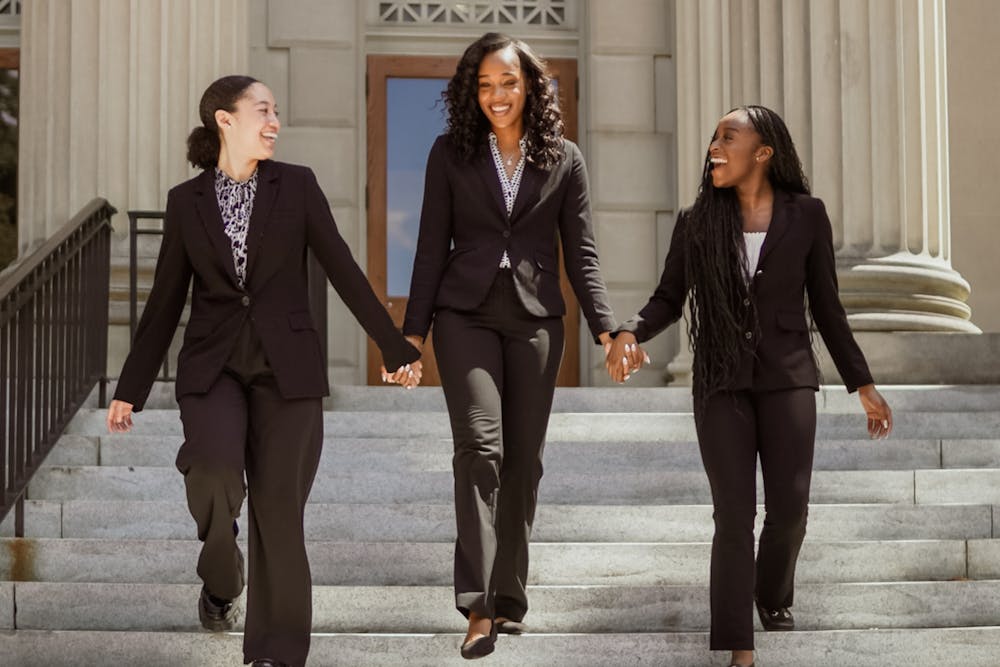Jaleah Taylor was working as a Congressional Black Caucus intern with Congressman Jamaal Bowman over the summer when she said she received the news that the Supreme Court was striking down race-conscious admissions programs at higher education institutions.
Taylor, the UNC undergraduate student body secretary, said the decision made her think about how it would affect her future law school admissions process.
“I just felt like with the recent affirmative action decision, it’s like we need to have a Black space for those that are interested in going into legal careers,” she said.
It was with a shared passion for law that Taylor, along with Taylah Smith and Joann Obioma, founded the Black Pre-Law Student Association (BPLA) over the summer. The BPLA is a student organization that aims to support aspiring Black legal professionals throughout their academic careers.
Their mission is to create a supportive environment for Black undergraduate students interested in the legal field that fosters professional development, social awareness and academic excellence.
Smith, who serves as the executive assistant to the student body president, said she became interested in law to make sure she could see the difference she was making in her community. During her first year at UNC, she said that while she had a desire to join organizations, there was a lack of representation and inclusivity at a predominately white institution like UNC.
“I wanted to be a part of an organization that uplifted the voices of African American students,” Smith said. “We have many things like that on campus such as BSM [Black Student Movement], but I knew that I wanted to do something specifically for my career.”
Smith said that over the summer, she, Taylor and Obioma started to see the disparities in the representation of Black legal professionals. Smith, who has worked for the Death Penalty Information Center in Washington, D.C. and as a corporate legal intern for Capital One, also said that she hasn't seen any lawyers who look like her at any of these opportunities.
“I think that kind of struck me a bit,” she said. “When you start to look up the statistics of how many Black legal professionals there are in regards to how many white legal professionals there are, there’s a pretty big gap. I think a lot of that has to do with resources.”




